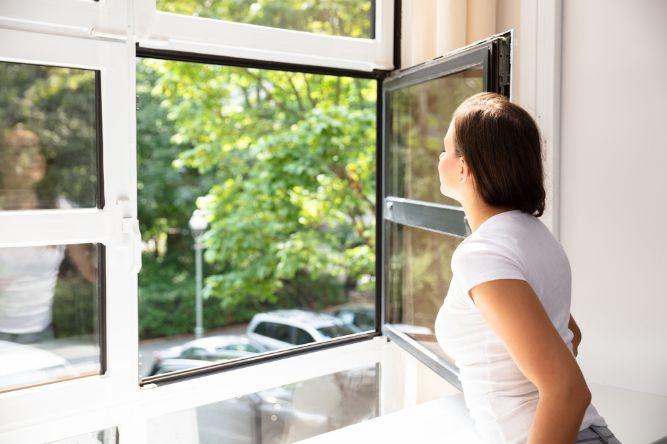In the middle of summer, when we’re desperate for some relief from the heat, a cool home becomes a major priority. But even if you already have air conditioning and your home is at a comfortable temperature, you may be wondering how to keep your costs down while also reducing your energy consumption (and bill, of course).
The good news is that there are many straightforward and cost-effective ways to increase your home’s efficiency while still staying cool. Whether you’re seeking solutions for a historic house, a new apartment, or an unairconditioned space, the following tips will help you to get a handle on the heat:
Window Coverings
Alright, this first one is not rocket science—but using window coverings effectively is a simple best practice that can actually reduce the heat in your home by up to 33%. Close your windows and window coverings during the hottest and sunniest hours of the day (often while you’re away at work anyway), and then open them to let in the cooler fresh air and less direct sunlight early in the morning, late in the evening, and at nighttime.
Seal It Up
According to home efficiency experts, most people would have a hole at least the size of a basketball in their home if they added up all the leaks and cracks where temperature-controlled air is escaping. Taking a little time to seal things up now can save you big time in the future.
Pay special attention to holes in ducts, poorly sealed windows and doors, and areas of the home where insulation may be scant or absent (ceilings, roofs, and attics are major culprits). You can also make an appointment for a home efficiency audit with a local agency to provide a more in-depth snapshot of how to increase your home’s efficiency.
Program for Success
Your air conditioner and thermostat are great cooling tools, but you’re the one controlling them and calling the shots.
Make sure your thermostat is providing accurate readings, and then program it and your air conditioner to higher temperatures during the hours you’re not at home. It also helps to keep your air conditioner in good repair with regular maintenance and to use it for its dehydrating function as well as for its temperature control. This brings us to our final tip…
Evaluate What Is Truly Comfortable
You don’t have to be married to a particular number on your thermostat. Sometimes dryer air, even at a higher temperature, can actually feel perfectly pleasant.
Maintaining good airflow in your home with the use of fans and open windows can genuinely reduce the need for constant air conditioning—as long as you’re savvy about how and when to use them. Good quality window coverings along with a well-sealed home can further reduce your home’s heat.
And, of course, planting shrubs and trees for natural shade plus evaluating the orientation of your home and windows (if you have the luxury of building new) are also significant heat neutralizing considerations.






